To my sorrow I never really got to know my father. I sometimes feel that if he had lived longer, perhaps my brother, Joy Bimal Roy, or I could have worked with him and learnt the craft in a way that no school or textbook can teach. But my father did not really like us visiting the sets. He kept home life and work life apart. And I think I was usually asleep when he came back home because in filmmaking there are no 9 to 5 timings. In any case we were too young. Joy was 11, and I, always immersed in studies and books, was 15 when he passed away.
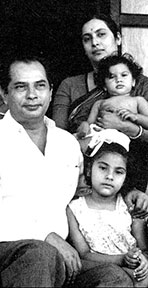
My father would have been a very loving father if he had had time. He was busy directing other children most of his life. Says Ratnottama Sengupta, daughter of one of Baba’s favourite scriptwriters, Nabendu Ghosh, “He had to pack in a lot of films into a very short time.” Sometimes I think he knew that he did not have long to live, to do everything or say everything he wanted to.
There were so many unfinished projects when he passed away, the most important being Amrit Ke Khoj, a film based on a Bengali novel by Samaresh Bose, about 6 people on a spiritual journey who meet on a train and whose lives would never be the same again. Joy made a short film out of the rushes that were miraculously preserved in a trunk in one of the rooms rented by Bimal Roy Productions in Mohan studios where most of my father’s films were shot.
[highlight background=”#f79126″ color=”#ffffff”]Quite a few children made their debut in my father’s films[/highlight]—Asha Parekh in Maa and Sona Mastan Mirza in Sujata, to name a few. Baby Sonu (Bablani) used to come over to play with Joy, who was a little boy at the time. My father chanced to be producing the screen version of Tagore’s Kabuliwalla and on spotting her thought she would be the ideal choice as the little girl character. Baby Sonu went on to win a National Film Award for the role.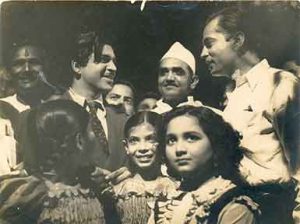
All the children whom my father directed managed natural, believable performances. I saw my father handling those nervous kids with great sensitivity. Baby Farida, the awkward little girl who played the young Nutan in Sujata wore a short crumpled pinafore, had an uneven pigtail, a front tooth missing, and emoted a pathetic hunger for acceptance; in my opinion, she walked away with the first half of the film. Getting the best out of an actor, child or adult, is something Baba did magnificently. You have only to see the films to believe it.
My father lived his life totally through cinema. Amrit Shah, my father’s right hand man during productions, once informed him that he had to sign a cheque—it was for a property my mother wanted to buy, the current family house; my mother being the more practical of the two. My father signed the cheque without so much as a second glance. Moments later, realising what it was, he looked Mr. Shah straight in the eye and said sternly, “I don’t make films to buy property, Mr. Shah.” The films that my father made were an extension of his beliefs and hopes for the nation he saw come into being before his eyes. He had a mission to fulfil.
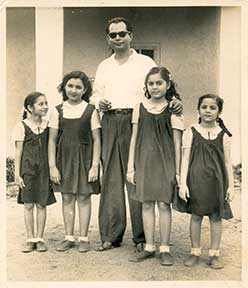
Though my father spent very little time at home or with us, his sets had a warm, home-like atmosphere. I know that he made people feel comfortable even though he spoke very little. [highlight background=”#f79126″ color=”#ffffff”]Someone once said that my father has been known to turn to a spot boy after completing a take and ask him what he thought of the shot. This innate respect for his fellow men and women permeates his cinema, befitting the ideal of democracy that he and his colleagues believed in so passionately.[/highlight]
The people who came with him as assistants or fellow comrades from Calcutta, on that fateful journey in a train in 1950 that seemed almost like a journey to the Maha Kumbh Mela, became our fond uncles. Their respective wives became our aunts. Nabendu Ghosh’s family, Hrishikesh Mukherjee’s family, Salil Chowdhury’s family, Kamal Bose’s family, Dilip Gupta’s family, Asit Sen’s family, and many others were with us through all the joys and sorrows that we encountered while growing up. And even today, 54 and 74 years, respectively, after my father and mother passed away, the bonds still remain, strong as ever.
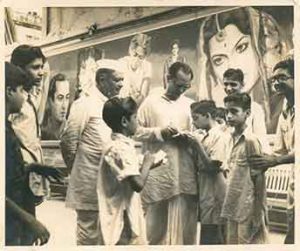
Dilip Kumar once said in an interview that there was no film school in the days when my father was making films. Dilip Kumar acted in three of them (two were produced by Bimal Roy Productions and the third by Savak Vacha). My father and he (my father called him Yusuf) were writing the screenplay of a fourth, a film to be called Puraskar, which was somewhat like the Goodbye Mr Chips story, when my father died aged 55 of cancer. It is clear that he was my father’s favourite actor. Dilip Kumar said that he learnt to act from working with my father and that it was the only “school” that he knew.
While other fathers were perhaps spending quality time with their children, Baba was out there making films that gave us a world that we would never have known but for him—the matrix of Indian literature, culture and society, seen through the eyes of writers like Tagore and Sarat Chandra. The characters that filled his screen were ordinary human beings—a farmer, a forest officer, a village girl, a housewife, a postman, and once in a while, a freedom fighter—but all of whom became remarkable because of their lives of struggle, dignity and integrity. [highlight background=”#f79126″ color=”#ffffff”]Shyam Benegal once said that he had noticed that the camera in my father’s films was very carefully placed so as to always be on the same level as the actor. It was never used to strip a character of their essential humanity. No clever top shots to make characters look like ants struggling against a hostile environment.[/highlight]
The famous child actor-turned-comedian Jagdeep who played a small but significant role in Do Bigha Zameen as Ratan, a little boy’s mentor on the streets of Calcutta Cruel City—the French named the film thus for Cannes—passed away recently. Some years ago, in an interview for a documentary on my father, Jagdeep became highly sentimental. He remembered my father as someone who treated him not just kindly but with respect. A little urchin fresh off the street, a faceless boy hanging around with many others on the fringes and kicked about by watchmen, he said he suddenly felt important and wanted. Jagdeep said that my father had promised him that he would fly him by plane to Calcutta for the premiere if the film was released there. And he did. Eons after it happened, Jagdeep still remembered this with great pride.
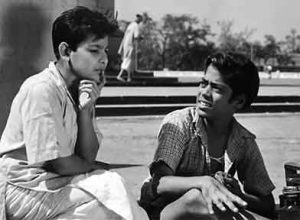
When he appeared on the sets on the first day, Jagdeep says, my father sent someone to buy a shirt for him. When the new shirt came Jagdeep was very excited, and wearing it proudly, he presented himself for the shoot. My father took one look at him and said, to Jagdeep’s shock, “Take off the shirt.” He then called one of the assistants and asked him to rough up the shirt, tear it and rub it in the dirt. Do Bigha Zamin brought neorealism to Indian cinema. For Jagdeep this was his first lesson in naturalistic acting. It also sent his opinion of my father soaring.
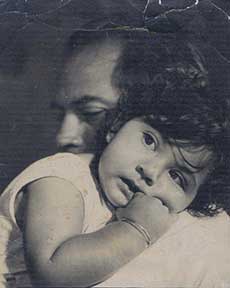
“Do you know wherein lies Bimal da’s greatness?” Jagdeep said to us. “Many people in India back then could not read. Your father took such beautiful stories, important stories, and made films so that people could see them and learn from them. For him, those people who cannot read are important too. [highlight background=”#f79126″ color=”#ffffff”]He loved the common people. It was for them that he made his films.”[/highlight]
I have said that I wish we had known our father better. He was a very quiet man and was probably exhausted when he came back from work late at night. Listening to anecdotes related by people who knew Baba was a learning by itself. We got to know much more about our father in such a beautiful, intimate way through their memories. What better way to salute Baba than to recount the words of people who knew him better than we did.
[divider top=”yes” anchor=”#” style=”default” divider_color=”#999999″ link_color=”#999999″ size=”2″ margin=”0″]
In the cover pic: Bimal Roy holding his daughter, Aparajita Sinha. Others include Balraj Sahni, Salil Chowdhury, Hrishikesh Mukherjee, and Dev Anand. Below: link to the documentary Remembering Bimal Roy by his son, Joy Bimal Roy.
[youtube_advanced url=”https://www.youtube.com/watch?v=HuXGy55bc4o” width=”300″ height=”200″ responsive=”no” controls=”yes” autohide=”alt” autoplay=”yes” mute=”no” loop=”no” rel=”yes” fs=”yes” modestbranding=”no” theme=”dark” playsinline=”no”]
See also: Ritwik Ghatak, and The Bimal Roy Path
https://filmcriticscircle.com/journal/bimal-roy-path/
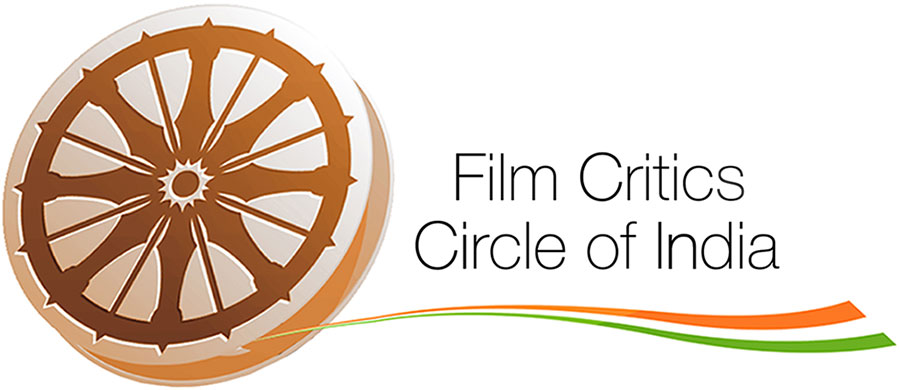
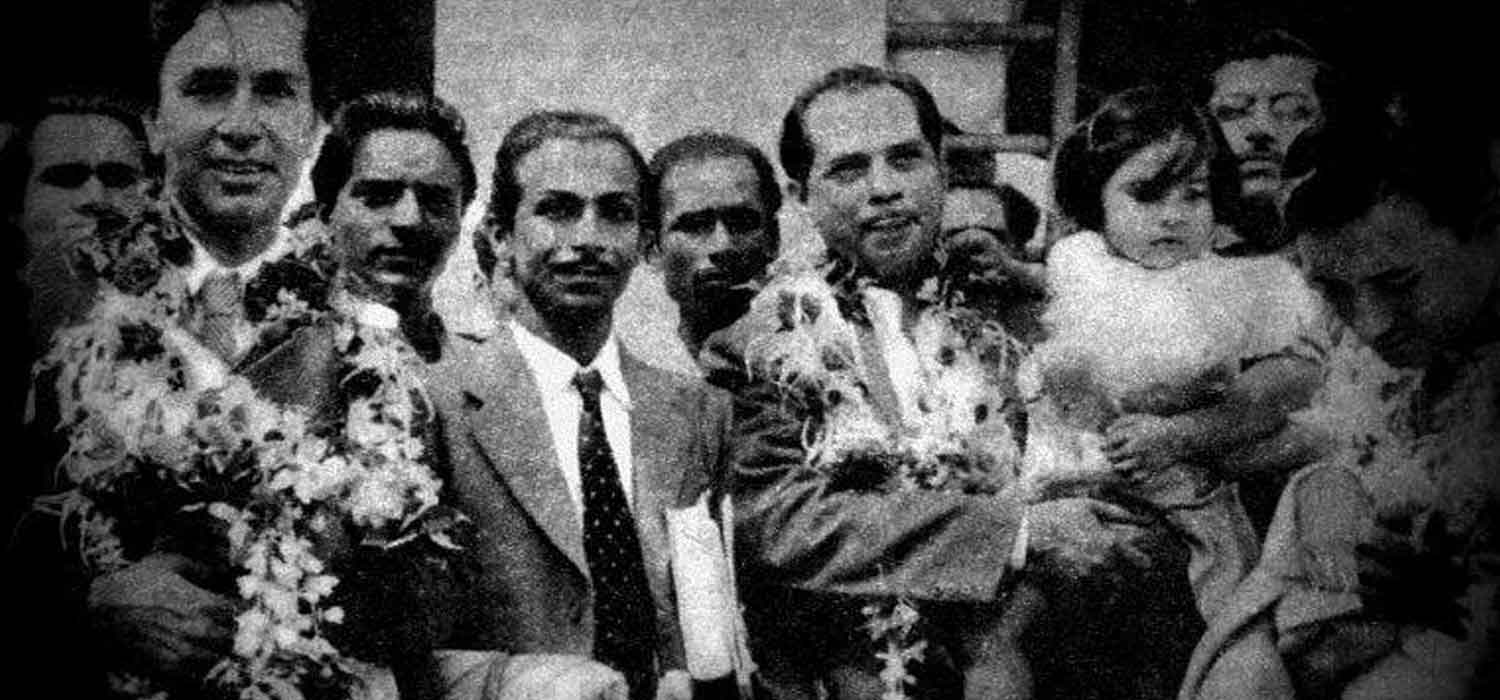

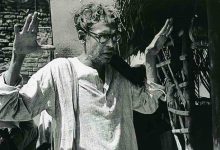

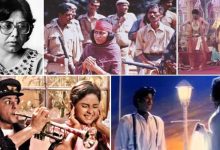
Leave a Reply
You must be logged in to post a comment.